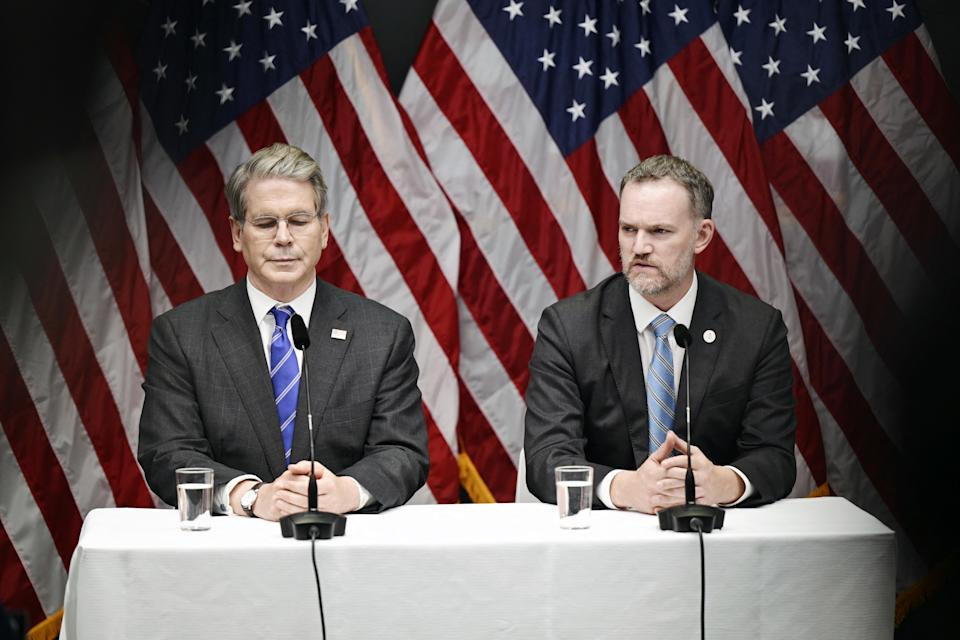
Trump says Powell must lower interest rates 'now' following GDP uptick
Key Points
- President Trump is pressuring Federal Reserve Chairman Jerome Powell to lower interest rates following a stronger-than-expected 3% GDP growth in the second quarter of 2025.
- Despite Trump's claims of no inflation, recent data showing a rise in June is likely to keep the Fed's monetary policy unchanged for now.
- Trump's tariff agenda and fluctuating GDP readings, influenced by import surges, remain concerns for the central bank.
- Investors and analysts are watching for potential signals from Powell or dissenting Fed governors about rate cuts in September or later this year.
- Trump's persistent criticism of Powell is unlikely to subside until interest rates are lowered to his satisfaction.
Summary
President Trump is intensifying pressure on Federal Reserve Chairman Jerome Powell to cut interest rates following a robust 3% GDP growth in the second quarter of 2025, surpassing economists' expectations of 2.6%. Trump hailed the economic rebound as "WAY BETTER THAN EXPECTED" on Truth Social, insisting that Powell must act "now" to lower rates, citing no inflation and the need for people to buy and refinance homes. Despite Trump's claims, recent inflation data from June suggests the Fed will likely maintain current rates in the immediate term. The GDP surge partly reflects the impact of Trump's tariff policies, which previously contributed to a 0.5% contraction in the first quarter due to import surges. While Trump remains optimistic after a recent meeting with Powell, expecting a shift toward lower rates, Powell has shown no immediate inclination to change policy. Investors are closely monitoring for hints of future rate cuts, possibly in September, while inflation and Trump's trade agenda continue to pose challenges for the central bank. Trump's persistent critique of Powell is expected to continue until his demands for lower rates are met, as evidenced by his comments during a Federal Reserve tour.
yahoo
July 30, 2025
Stocks


